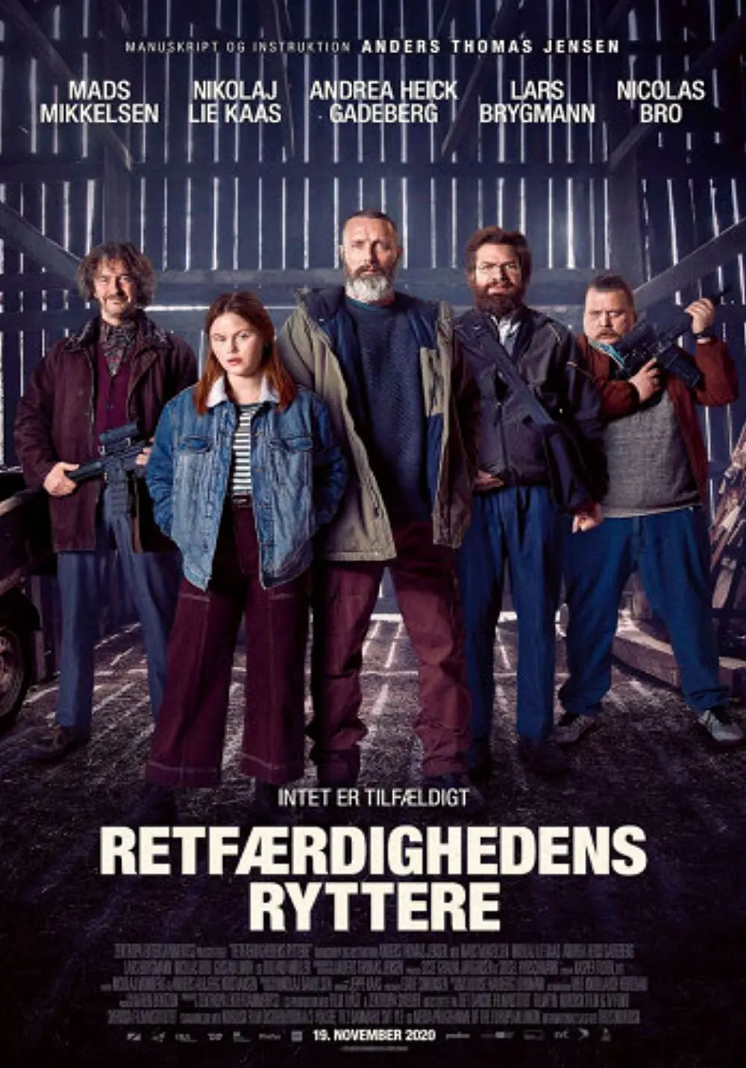April The one day war has written the fragility and uncertainty of a country

After watching the movie, I had mixed feelings, especially after listening to the oral accounts of the Danish veterans. Before, I always thought that the commemoration of the war was only for the victorious big countries, and that small countries did not need to participate in it, and even if they did, it would not be more meaningful and profound than the big countries. However, “The Day the War Began” completely eliminated my prejudice, not only that, but perhaps the commemoration of small countries can let us discover more details that are ignored by history textbooks.
The film is a one-day – technically, a few hours – history of the war in Denmark. From memory, this is probably only a paragraph, or even a few sentences, in a textbook. But the film shows the conflicts in Denmark in this short period of time through the detailed portrayal of scenes, characters and plot. I deeply felt how vulnerable and uncertain Denmark was as a small country in the face of the sudden German invasion.
The film’s expression of vulnerability is intuitive: the small number of troops, the poor equipment, the lack of reinforcements, etc., all reflect the inability of Denmark in the war. The director seems to focus on two details to portray: one is the “bicycle”. In the face of the German armor, the Danish army’s main equipment in preparation for the war and in actual combat is the bicycle. Watching the soldiers practicing how to disassemble and reassemble the bicycle as fast as possible, watching the soldiers desperately riding the bicycle to the front line in the early morning and retreating for their lives, it was really funny and ridiculous, and then a deep sympathy was born; the second is “preparation for war”. The director apparently deliberately focused a lot of footage on the Danish soldiers loading and arming their positions. Whether it is the so-called “huge” amount of 40 bullets per person, or in the face of German armored vehicles, the Danish soldiers are still hurriedly stuffing bullets into their rifles one by one, setting up machine guns in the open grass plane, under the German troops approaching, each of their actions seem so clumsy and powerless, we can not help but sigh: defeat has long been The defeat was already predetermined, and the resistance was just futile.
Compared with the depiction of the “vulnerability” of military strength, the “uncertainty” of the heart is the focus of the film. It can be found that the eyes of every Danish soldier in the film are filled with apprehension and fear of the war and the unknown. Whether it is Lars Mikkelsen as the top commander of the front line, or Johan Philip Asbak as the male ensign, as well as the group of immature soldiers, their eyes are always flickering and uncertain, unable to find a soldier should be resolute. Among them, the male lead portrayed particularly vividly, although he accepted the orders of his superiors is resolute, the command of subordinates is decisive, but his melancholy eyes are the true reflection of his inner world at that time: is it really going to resist the war? Can we really resist successfully? Can the position really be held? Will reinforcements come from the rear? One question mark after another surfaced in his mind, while the fragile reality gave him one cruel answer after another, and his inner spiritual defense gradually collapsed until he finally declared his “surrender”.
In fact, these answers he had already expected, but as a soldier, he did not want to admit it easily, and was willing to make the last struggle. Perhaps, this is the most realistic picture of the Danish soldiers at that time: they have a sincere patriotic feeling in their hearts (even though the complicated history makes the Danes in Jutland and the Germans have a complicated relationship), and they are willing to make their own sacrifices to defend the country, but their passion is not the same as the national will, and all their efforts are finally turned into a reality. At the end of the story, when the German officer asked him curiously why he had fought for so long after the government announced the surrender, the last straw was finally pressed into his fragile heart: it turned out that from the beginning to the end, our resistance was futile, and even contrary to the will of the country, which was so absurd and ridiculous that it was laughable.
I love the scene at the end of the story, when the hero and the surrendered soldiers are crossing the village road in a car, looking out of the car window at the children jumping on the German armored car they just destroyed and having fun. This scene clearly suggests that the Danish army also did its best to fight the war, even if the effort was so insignificant. I think the Danes will not deny the fact that the country surrendered to Germany early, but they still want to tell the world a more complete history through the film “The Day the War Began”: the rapid surrender of the government does not mean that the Danish people did not do anything to resist, in fact, they have the same pain of being trampled on as other peoples who suffered from fascist aggression, the same sorrow for the death of their country, even after the end of World War II 70 years later, their hearts and minds are still full. Even today, 70 years after the end of World War II, there is a scar in their hearts that is still confused but deep in their bones. Perhaps, for Denmark, the moment when the government announced the surrender, the feelings of the country and the people were extremely divided, and this division made the nation suffer from a pain that no other country could understand, and the Danish people nowadays have to carry the silent complaints it brought.
In short, “The Day of War” is heavy and sad, this sadness may not be as bloody and unpleasant as other countries, but failure has become its helpless ending, this embarrassing result reveals the vulnerability and uncertainty of a weak country facing war. Ask yourself, is this not the true purpose of the pursuit of peace that we are advocating to defend?




